Welcome to today’s bucket of eels. I’m Rose. Let’s pull out some eels, shall we?
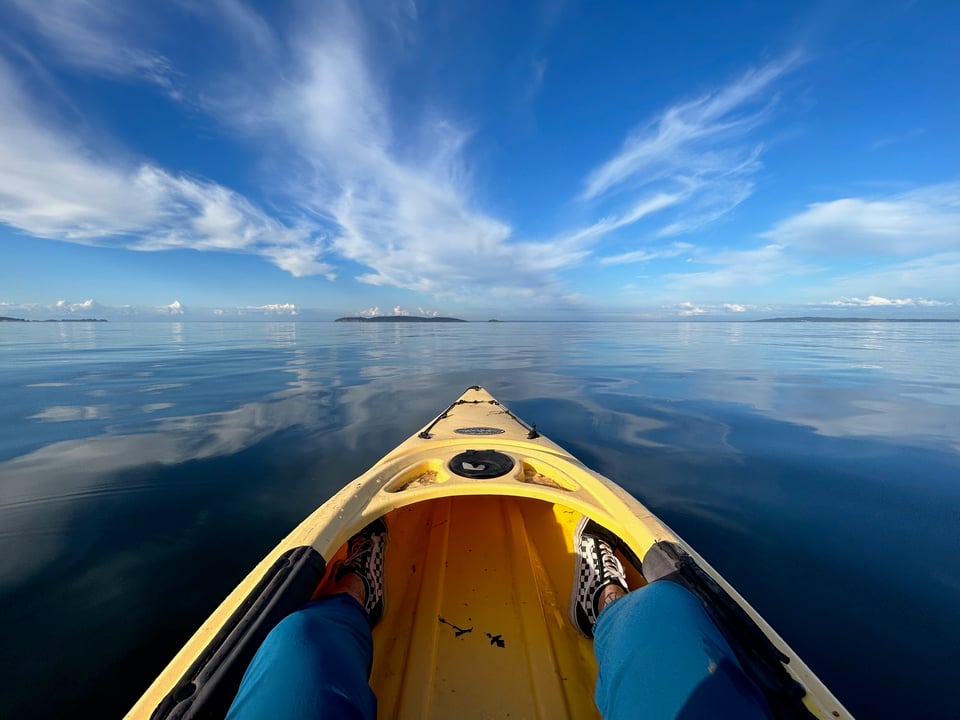
Today’s eel: Today's newsletter is a little different. There's no specific eel. Last year, I ended the Flash Forward podcast, and closed the Patreon. In its place, I encouraged people who were interested in the Rose Eveleth Extended Cinematic Universe to join a more general membership program, called the Time Travelers Club. The TTC has been basically my only source of income since January. And today, I wanted to share with you a sample of what those folks get twice a month.
This is, frankly, a shameless attempt to try and drum up a few more members. Right now, all my work is self-funded. I’m working on lots of stuff (see below for project updates), but none of it is making me money right now. The writers strike means that some of my adaptation deals are on hold. I’m developing a book proposal, but it still need some work. I’m about to close a deal for a documentary podcast series that is really exciting, but that I’m going to have to self-fund a portion of it from my own savings.
Which is all to say that if you like my work, and want to become a Time Traveler, now is an excellent time! Below you’ll find a sample of the Time Traveler Dispatch, which is the newsletter that members get twice a month. Members also get exclusive access to blog posts, process logs, unpublished fiction & poetry, a book club, a bonus podcast, a secret merch store, and other bits and bobs as they come up.
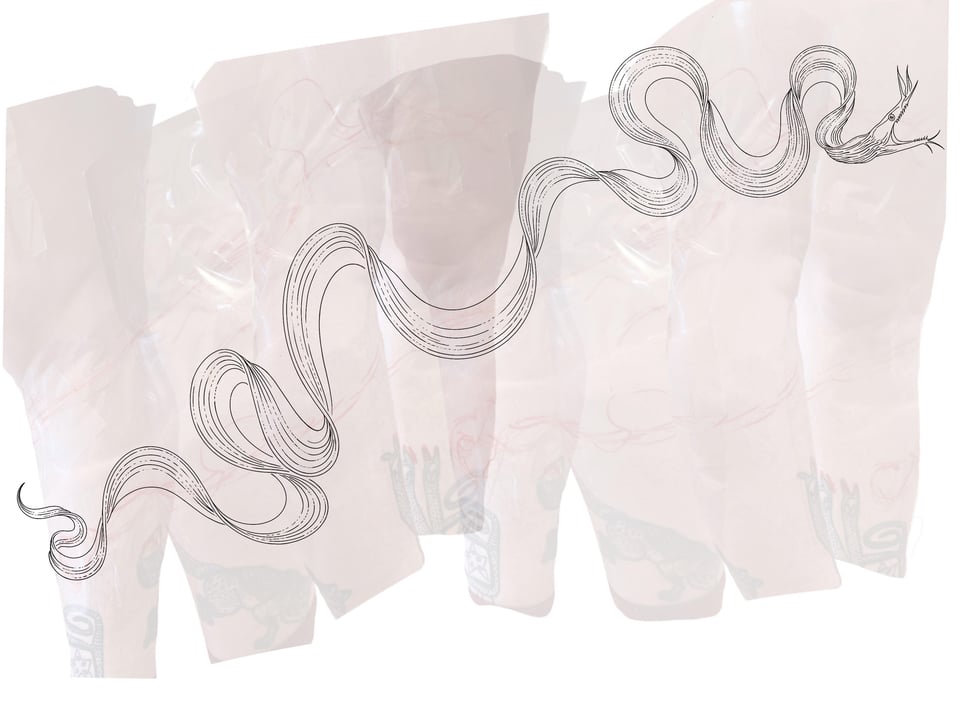
PROJECT UPDATES
I give all my projects secret little mushroom code names. Members know a lot more about each of these.
I’m still waiting to hear back from powerful people on PROJECT COMMUNE (a documentary podcast series) and I’ll be honest that I’m not dealing with the delay very well. I’ve spent over five years trying to sell this, and we’re closer now than we ever have been. At the same time, the rug has been pulled out from beneath me on this project more than once. One big company said they wanted it, solicited a ton of additional materials, dragged their feet for months, and then decided they didn’t want it after all. Another company said yes, only to lay off their entire podcast team the next week and kill the project. The longer I wait with a half-negotiated deal the more terrified I become that this will become yet another “we almost sold it but...” situation. There’s not much I can do aside from wait and gently nag via email, but I’m stressed!
Even if we do seal the deal, I am going to be fronting some of the money for PROJECT COMMUNE myself, because our partner doesn't have the funds to cover the entire budget. Hence, in part, this email to you all trying to entice you to join my little membership program.
I got a new book agent recently, and I’m SO happy with this new relationship. I recently got notes from about a bunch of things and I’m really pleased with her comments and feedback. I now am going to edit PECKII V (a short story about power and potential) to be shorter and try to submit it as a short story.
I’m doing final edits for PECKII III (a short story about activism and the future), but if I’m totally honest I’m not feeling great about the story. I can feel that something isn’t quite working but I’m not exactly sure what it is or how to fix it. I’m hoping that the editors of the anthology it is for can offer me some guidance.
The WGA strike is on hold but not yet fully over, which means that all talks on the adaptation of PECKII I (aka Lily and the Ghost, a short story that Time Travelers have exclusive access to) are still on hold.
I’m mapping out the plot points for PECKII II (a short story/novella about climate change and cults) and I’m excited to get started on it once I finish some of these other shorts.
I’m also going to map out the next plot bits for PROJECT CUBENSIS (a novel about family and mental health and science) and go back and revise some of the first section based on my agent’s notes. I also have to rename all my characters, because for this early draft I was using the real names of people that the story is based on, and that probably won’t fly. I could in theory just use the real names for the whole first draft and then change them when I submit to editors, but I don’t want to get too attached to these names.
I’m also working on refining my proposal for PROJECT OSTOYAE (a book proposal about the future), with the help of my agent (noticing a theme?) and I’m excited about the progress we’ve made. I’m not sure exactly when we’ll get the proposal out, but right now I’m focusing on finishing my sample chapter and getting the chapter outline done. Book proposals are really hard for me, because they’re so speculative. I know that might seem strange, since so much of my work is about imagining the future, but when it comes to pitching I’m less inclined to make things up. And yet, that’s exactly what a non-fiction book proposal is all about! You say “hey, I think this is what the book will cover and how it will go,” but everybody involved knows that once you begin reporting and writing, that will probably change. I was telling a friend about this and he sent me a useful little graph to describe the problem:
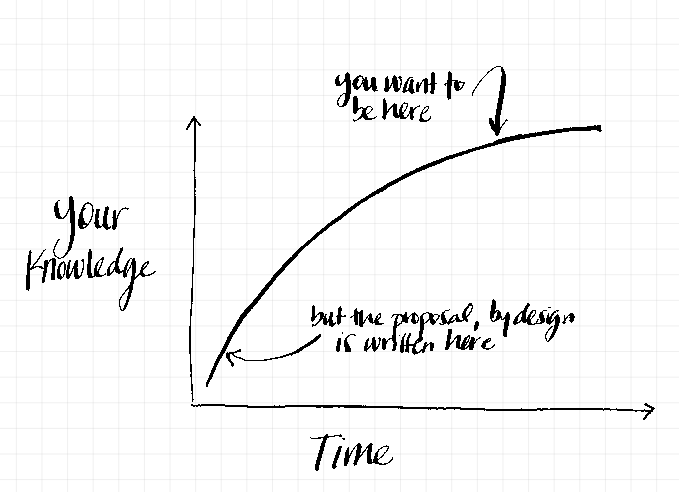
My goal is to have the proposal in fairly good shape by the end of the year, to submit probably in early 2024.
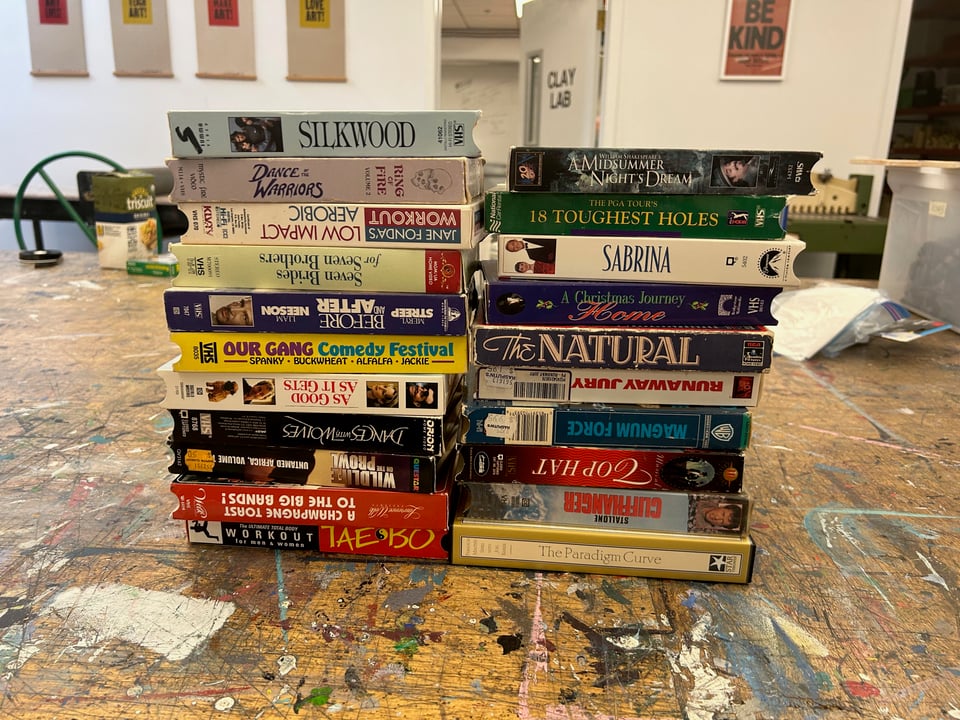
FERROFLUID PROCESS LOG
I’m back in school taking art classes from my local community college, and for my first project I decided to test out something I read about years ago but never tried: DIY ferrofluid. According to online guides, you can make ferrofluid out of VHS tapes, acetone, and cooking oil. So I tried it. And then I tried it another way because that didn’t work all that well. Along the way I dropped my phone into a vat of acetone, learned a fun physics trick, fought with magnets, and probably made my neighbors think I’m brewing something illicit.
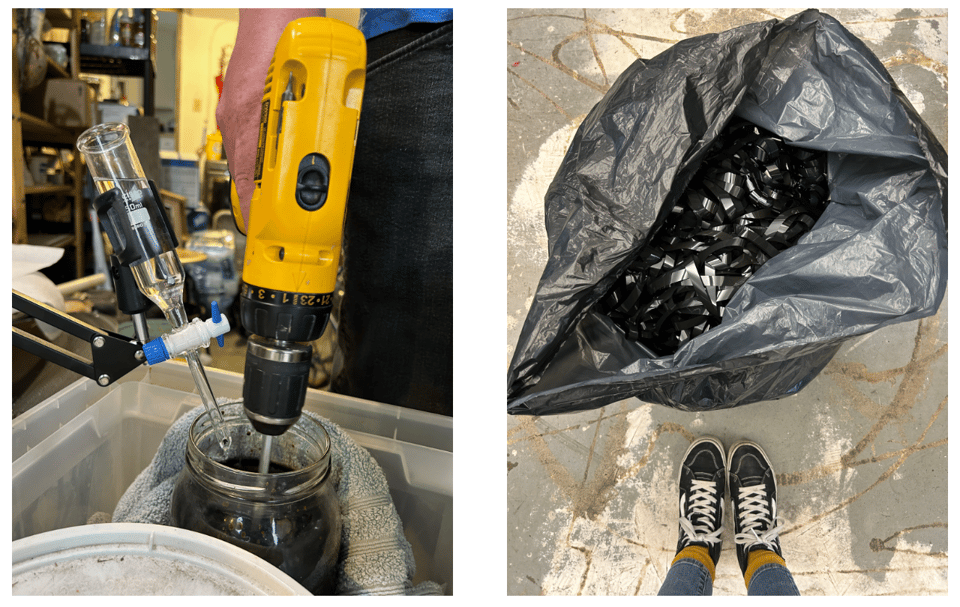
In the last Time Traveler newsletter I talked about the beginning stages and I wasn’t sure if it would work, but I can now report that I have in fact SUCCESSFULLY made ferrofluid in my garage! Time Travelers can read all about the adventure in the most recent Process Log. It was both easier and harder than I imagined, and the final result actually worked a lot better than I was expecting. You can see a video of the final product in action in the blog post!
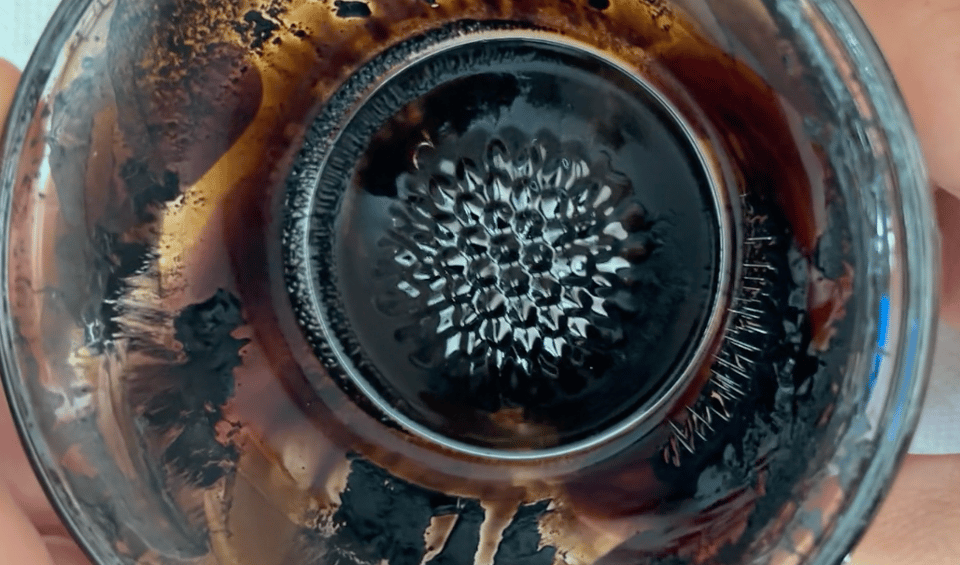
The ferrofluid is part of a bigger sculpture I’m working on. The idea is to put the fluid inside the glass orbs I’ve been throwing (see below for improved orbs) and then encase those in wood. Here’s the sketch:
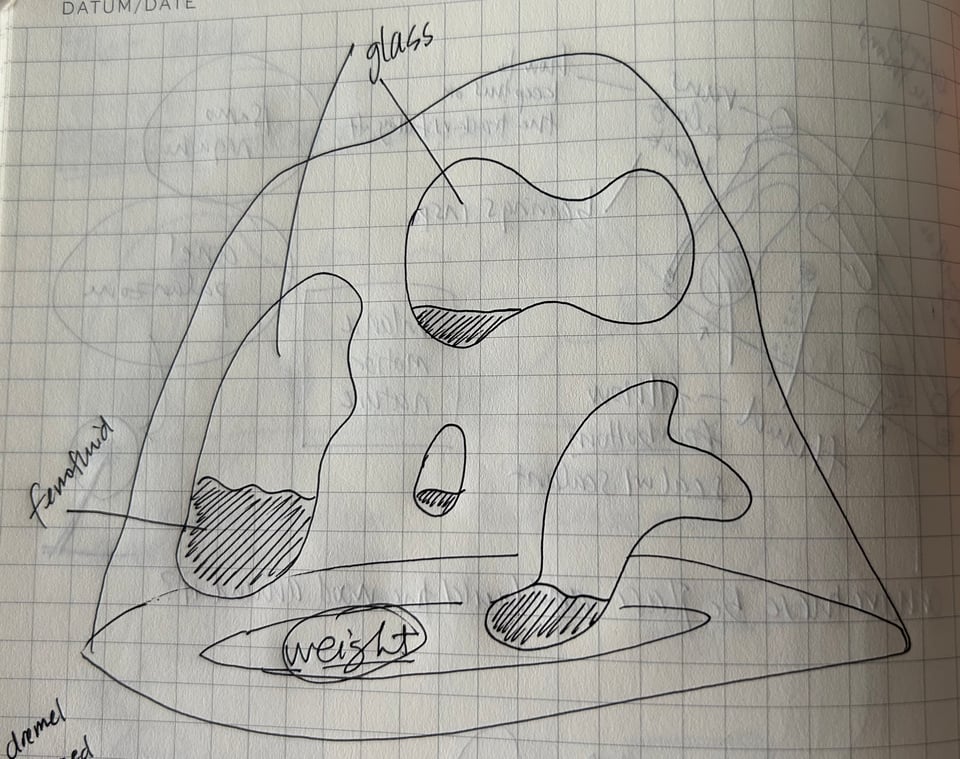
And here’s the beginning of the wooden structure bits.
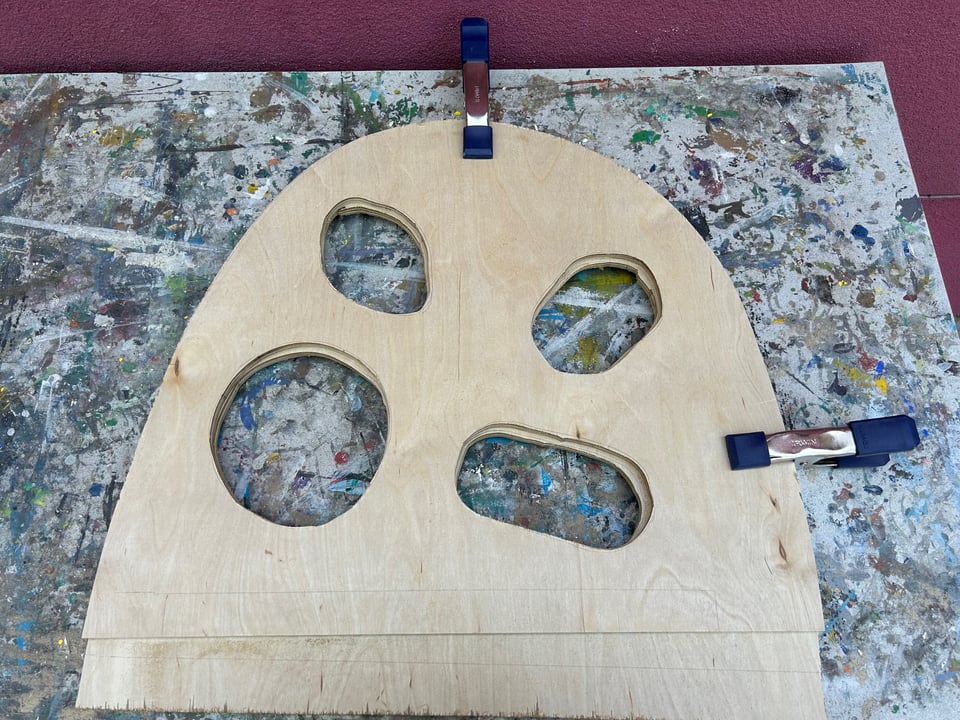
Next I have to layer additional pieces onto this that fit the glass I blew. This is probably the trickiest part because it’s hard to accurately measure the exact size of the holes I need to cut, given that the glass is not uniform. I think what I’m probably going to do is create molds of these glass pieces with clay, let that clay dry out to leather-hard, and then cut slices and use those to trace my holes. We’ll see if that works!
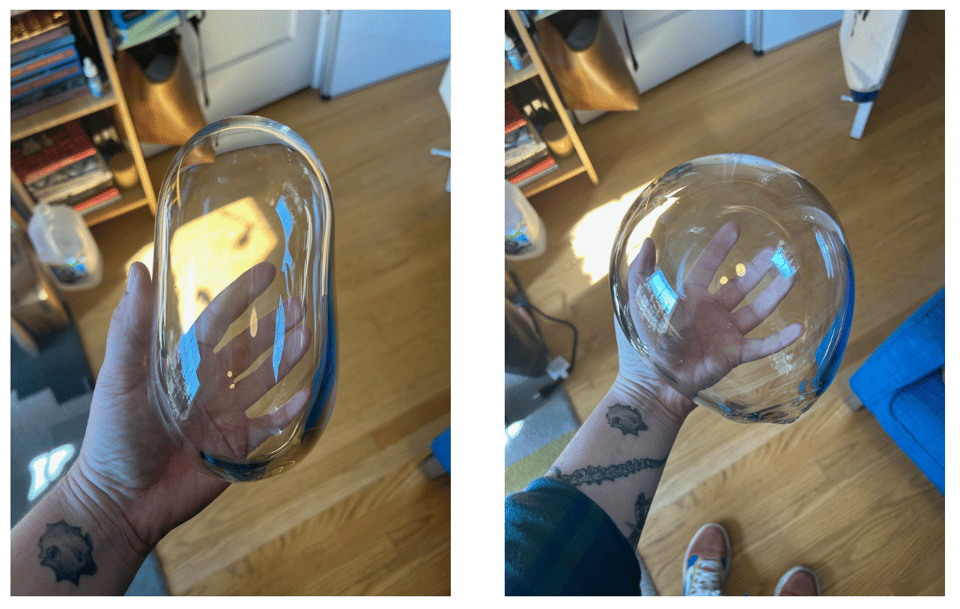
Behold my improved glass blowing! I will admit that I’m not sure that I like glass blowing as a practice. It’s quite stressful. Unlike clay or wood or other materials I’ve worked with, there is a distinct clock ticking on every move you make. You can only work the glass when it’s hot, and it’s not hot for all that long. So you have to know what you want to do, and do it swiftly without indecision or pause or reconsideration. But I’m glad that I’m learning it, if only so that in the future if I have something I want to make that includes glass I can make passable vessels.
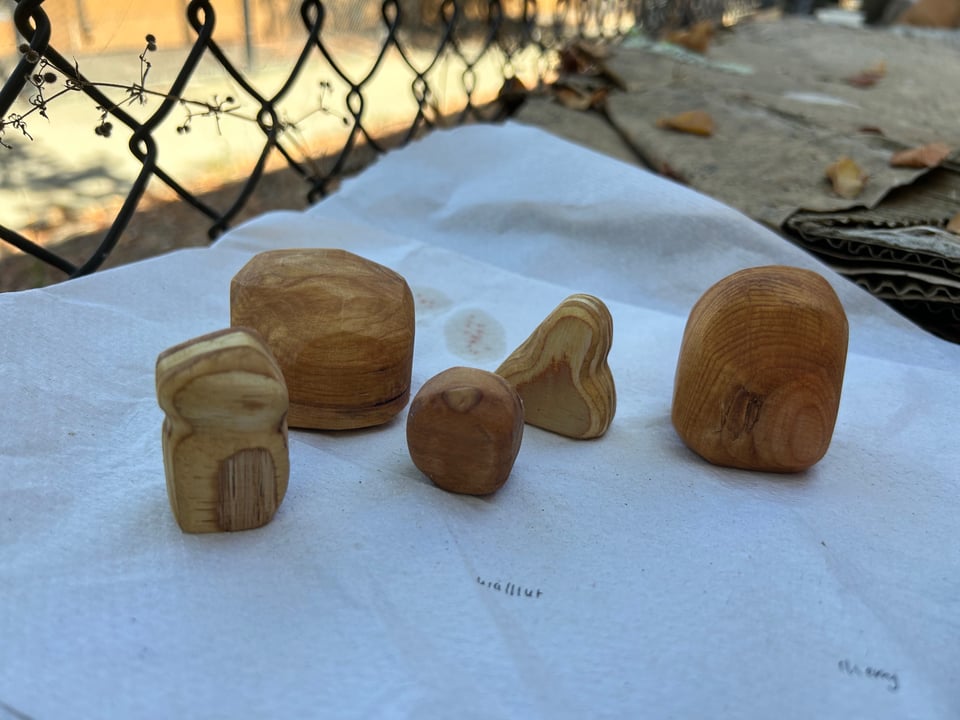
Once the whole big thing is assembled, you’ll be able to use magnets to manipulate the ferrofluid within the glass. And to do that, I made these little wooden pebbles. Each one has a hole in the bottom for me to inlay a magnet. These are testers, and I’m not 100% satisfied with how they came out, but I learned a lot making them and will fiddle with this bit at the end probably.
At the end of this, when I have a finished sculpture, I’ll probably write this whole thing up in another Process Log. Members have exclusive access to all Process Logs!
OTHER MEMBERS ONLY STUFF
A few other things members have gotten recently (along with the satisfaction of knowing that you’re supporting my work):
Bonus Podcast conversations with Sabrina Imbler, Kate Darling, Steph Griffiths, Jarkko Jalava, Dean Spade, Adam Mastroianni and more.
A book club Zoom discussion with author Ed Yong himself about his book An Immense World.
Exclusive access to short stories like Lily and the Ghost, which is potentially being adapted for TV.
Exclusive access to monthly installments of a young adult novel I’ve been fiddling with about a teenager who has to help researchers figure out who in her generation can see the future.
Essays about AI and art, the importance of gathering information, pitches for dream television shows and podcasts, and more.
Blog posts that talk through my process for research when it comes to fiction and non-fiction — including screenshots of my Obisidian workspace.
Coming soon: early access to a special pottery/art sale I’m setting up.
Have I tempted you?? Become a member!
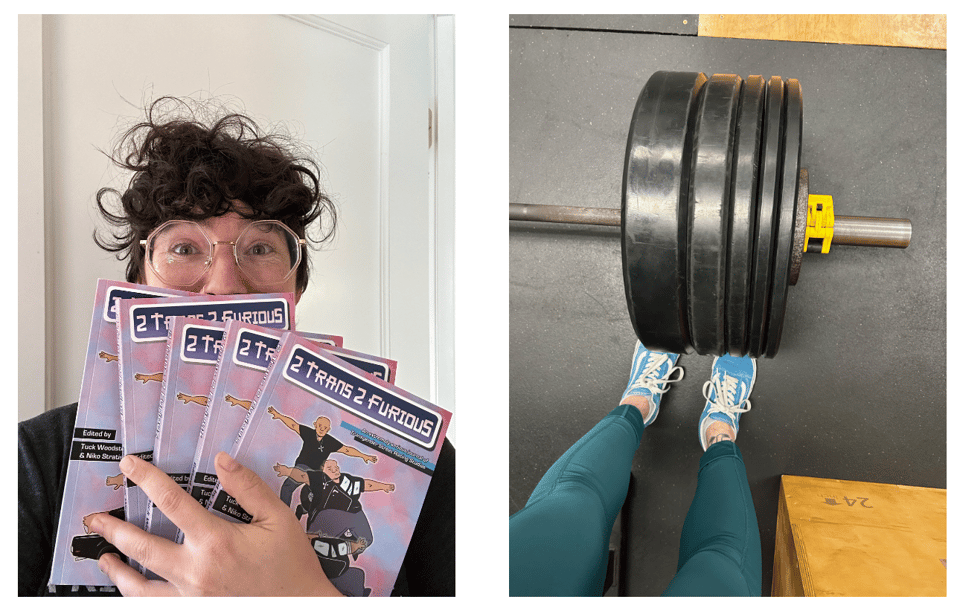
OTHER LIFE THINGS
Robert and I both ordered copies of this amazing book so now we have five of them. You can get one (or five, if you want five) here.
I deadlifted 265 pounds! I also squatted 205 pounds earlier this week. PR’s all around.
I’m taking a lichen identification course at my local community college, so get ready to be inundated with lichen photos and facts in future newsletters.
BOOK CLUB UPDATES
Time Travelers get access to a special members only book club! Right now, we’re reading Translation State by Anne Leckie.
It’s also time to vote for our next books! Here are the options for our next non-fiction and fiction reading:
Non-Fiction (to discuss in November)
Blood in the Machine: The Origins of the Rebellion Against Big Tech by Brian Merchant
Recoding America: Why Government Is Failing in the Digital Age and How We Can Do Better by Jennifer Pahlka
Optimal Illusions: The False Promise of Optimization by Coco Krumme
The Country of the Blind: A Memoir at the End of Sight by Andrew Leland
Fiction (to discuss on January)
Chain Gang All Stars by Nana Kwame Adjei-Brenyah
Mobility by Lydia Kiesling
A Snake Falls to Earth by Darcie Little Badger
Land of Milk and Honey by C. Pam Zhang
Become a Time Traveler and join us in the Discord to discuss and vote!
BACK TO THE FUTURE
aka updates on stuff we covered on Flash Forward
🌳 Giant Sequoias Are Burning. Should We Replant Them?: “Now, national park scientists are proposing a plan to harvest surviving sequoia seeds, nurture them into seedlings in a protected environment, and then replant them in the wilderness. But critics say that proposal goes against the very definition of wilderness. At the heart of this debate are some big questions: What is natural? And how much should humans intervene?”
🐟 Boom and Bust, All at Once: The Fraught Modern History of Fish Meal: “How the cheap protein fueled the Global North’s agricultural expansion and destabilized the Global South.”
🤖 How ChatGPT and Other Digital Tools are Transforming Medical Diagnosis: “Companies are developing tools that can assist physicians, patients, and consumers in diagnosing diseases or conditions. While impressive, these technologies raise a variety of legal and ethical issues.”
🐕 AI and the Doctor Dolittle challenge: “We frame the task of communicating with animals as ‘The Doctor Dolittle challenge’ and identify three main obstacles on the route to doing so.”
💧 Lost Water: “The desert city of Amman is running out of water. Meanwhile, officials fixate on gleaming visions of growth, perpetuating the fantasy that urban dysfunctions can be escaped rather than addressed.”
COOL THINGS // GOOD READS
💥 One of my new friends at my studio is crowd funding for his Afrofuturist comic right now! It looks really cool, and if you’ve got some bucks to spare please consider donating.
🪨 Eating fossils: “Licking the rock, of course, is part of the geologist’s and palaeontologist’s armoury of tried-and-much-tested techniques used to help survive in the field.”
𐃭 Conserving a Burmese offering vessel: “The object's complex shape meant that dust had settled in hard-to-reach places and the aim of this treatment was to restore the object to its former glory by removing as much dust as possible and make sure the object was structurally stable before going on display in the exhibition.”
⚪️ Negotiating Pearls in the Early Jesuit Missions of California: “From the earliest stages of the colonial-apostolic enterprise ambivalent attitudes concerning the pearl economy arose in the missions. Jesuit missionaries both rejected and depended on this extractive activity. They did not want their presence in the region to be associated with the violence inflicted on Indigenous people forced to dive. Nonetheless, they could not survive without the militia and the administrators who protected and funded their “spiritual conquest” and expected to hold privileges in the pearl trade.”
🔈 Science in the Church: The Sacred Spaces of Sonorous Experiment and the Formation of Modern Acoustics: “Focusing on France and Britain, this essay unpacks nineteenth-century churches as experimental sites and argues that these locations were crucial to the formation of new philosophical understandings of sound.”
🏡 Privacy, Technology and Fair Housing: “The housing space is becoming increasingly technified. Algorithms, built on troves of personal data, are being used to predictively screen tenants, approve mortgages, and more. The problem is that there are no consistent, concrete, accountable, or agreed-upon standards at a regulatory—or even industry—level to ensure that the data being used to build the algorithm is appropriately collected, trained, secured, and not creating a discriminatory outcome.”
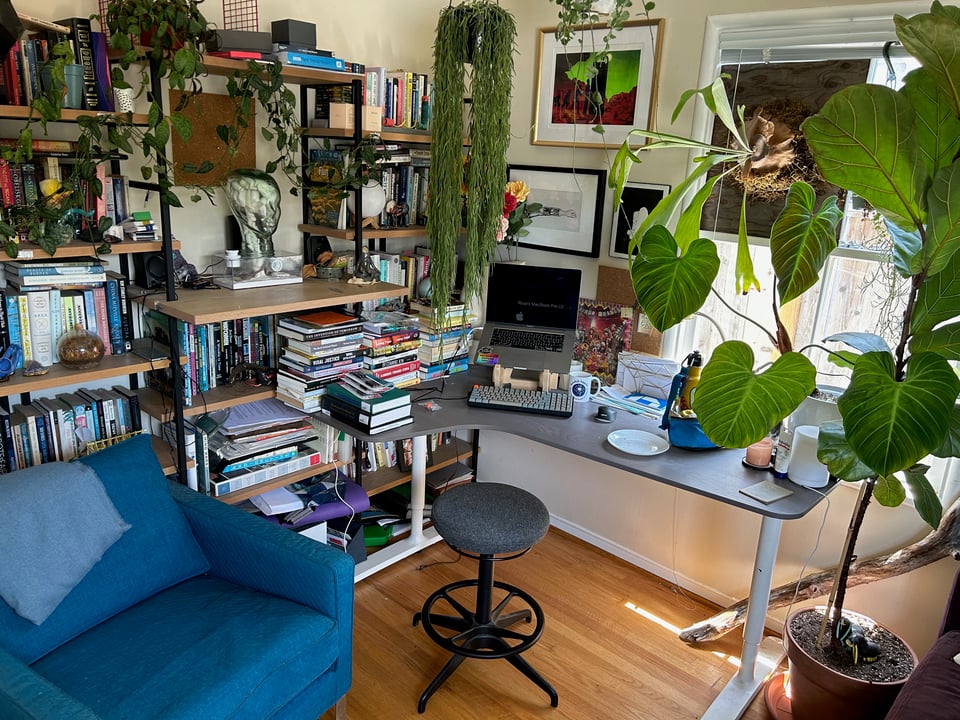
Okay if you’ve made it to the end of this newsletter you are really truly committed and I’m so impressed! (That, or you’re hunting for the Unsubscribe button, which is also fine!) Thank you for reading. Here is one last plug to join the Time Traveler Club! Back to regularly scheduled eels whenever I send this newsletter out next.
You just read issue #23 of Bucket Of Eels. You can also browse the full archives of this newsletter.